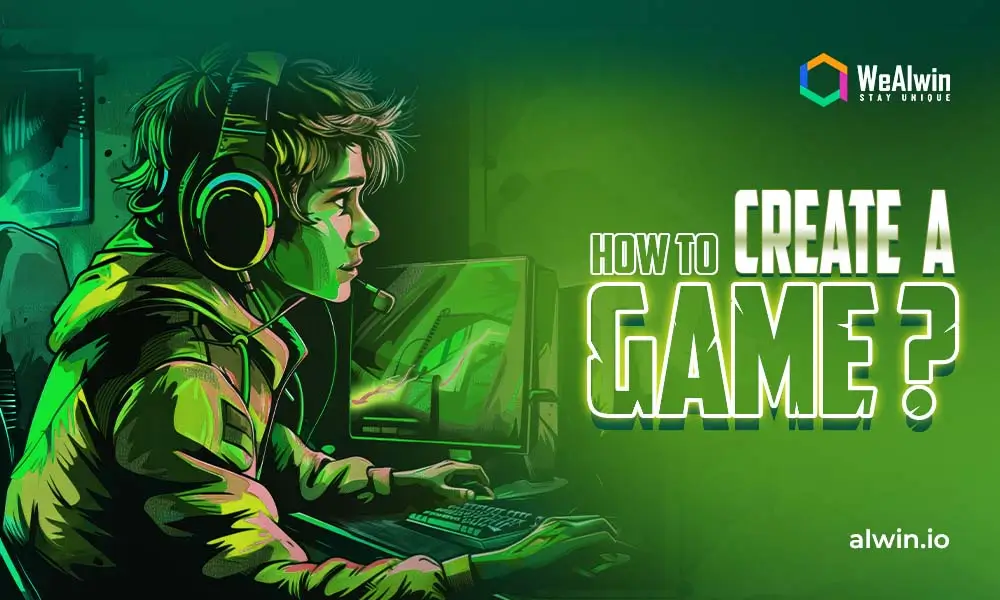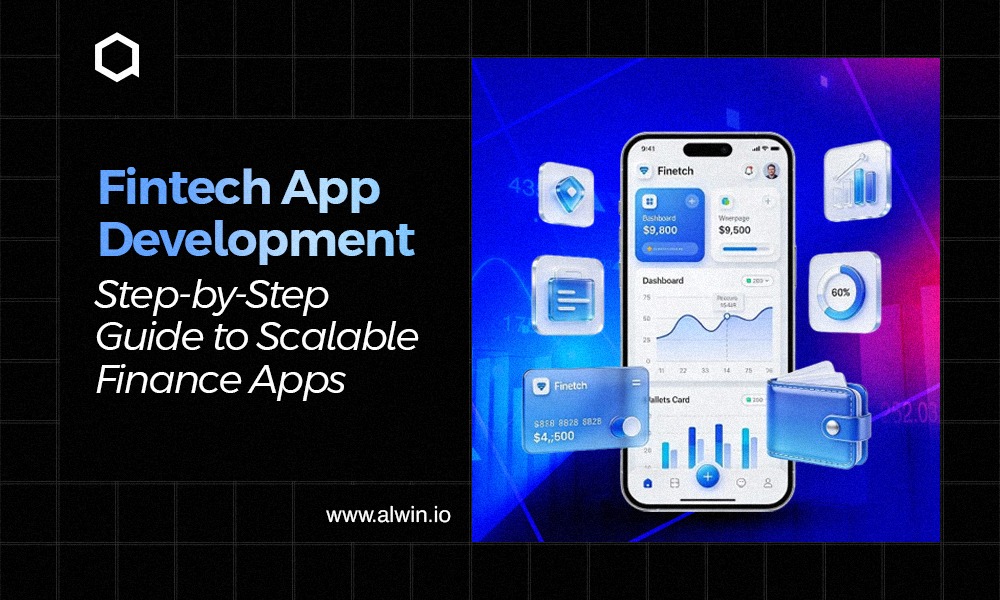In today’s world, entertainment is a vital aspect of life, offering a much-needed escape from our hectic routines. Gaming stands out as a prominent form of entertainment, drawing in a vast audience with its immersive and imaginative experiences. There are many genres of games, including action, adventure, RPGs, and more. Have you ever wondered how these games come to life? It’s quite fascinating! Game development involves multiple steps, from design to tool integration and launch. Let's have a look at how game development works.
The Importance of Game Development in Today's World
The gaming industry is a powerhouse today, with around 2.7 to 3 billion gamers, nearly 40% of the global population. Valued at $221.6 billion in 2023, it’s projected to reach $471.3 billion by 2032, growing at a CAGR of 8.74%. Mobile gaming alone is expected to grow from $115.81 billion to $165.88 billion by 2027.
Game development delves into various factors but it is not merely about entertaining the audience, it also creates impacts among the players by allowing them to think smartly in the game environment to solve puzzles and complex missions. It enables them to apply their mind more extensively and develops their critical thinking and problem-solving skills.
Iconic characters and franchises now influence everything from movies to merchandise. Games like The Last of Us and Super Mario do more than just entertain; they weave intricate stories that connect with a wide range of players, provoking empathy and understanding in the process. Minecraft and Fortnite allow players to build communities and engage in a shared experience. The educational impact of video games is increasingly recognized. Games are being used as tools for learning, helping students retain information more effectively through engaging content.
How to Create a Game?
Creating a game is a form of art, and a successful game goes through several critical stages, from conceptualization and design to tool integration and launch in today’s competitive market. Here’s a breakdown of the steps involved in game development
1. Define Your Game Idea
You might draw inspiration from personal experiences, favorite books, movies, or existing games. This can help you develop a solid concept for your game, making idea gathering the first step in the development process. Techniques like mind mapping or free writing can help you explore various possibilities without judgment. This creative freedom can lead to unique and innovative game ideas. Following the idea collection, it is essential to select an effective genre that is suitable for your game mechanism and plot. Decide whether your game will be a role-playing game (RPG), puzzle, action-adventure, simulation, or another genre.
Conduct a thorough analysis of the market to gain a deeper understanding of the competitive landscape. Study successful games to identify trends, gameplay mechanics, and storytelling techniques that engage players. Look for gaps in the market where fresh and innovative ideas can be introduced. It's crucial to understand your target audience, so create player personas that outline demographics, gaming habits, preferences, and motivations. Knowing your target audience allows you to customize the features of your game to their particular requirements and expectations.
2. Create Game Design Documents
Creating a game design document (GDD) is crucial for organizing your ideas and guiding development. Key sections should include gameplay mechanics, outlining rules and player interactions; a summary of the story, covering the setting and character development; detailed character backgrounds and motivations; and the art style, defining the visual aesthetic. A well-organized GDD serves as the project's blueprint. Incorporate visual aids like concept art, flowcharts, and diagrams to enhance understanding and communication, making your ideas more tangible for team members and stakeholders.
Explain the primary gameplay loop, how players interact with it, and the key activities in the game. This could include actions like exploring, combat, puzzle-solving, or resource management. A well-designed core loop keeps players engaged by providing a satisfying rhythm of challenges and rewards. Plan how players will advance through levels or gain new abilities including experience points (XP), skill trees, or achievements. Clearly outline what players need to do to progress and how their actions impact their journey.
3. Choose Your Tools
When choosing a game engine, it is essential to evaluate your options based on your specific needs. You can consider Unity 3D, Unreal Engine, and Godot for your required game engine. Unity 3D is versatile and user-friendly and supports both 2D and 3D development. Unreal Engine excels in high-quality graphics and offers a visual scripting system, though it’s less beginner-friendly. Godot is open-source and easy for beginners, especially in 2D. Be sure to utilize the extensive tutorials and resources available for each engine.
Development tools are essential for collaborative projects. Version control solutions, such as Git, handle code and asset changes, allowing numerous developers to work without dispute, while platforms such as GitHub or GitLab enable collaboration and backup. Trello and Asana are examples of asset management software that assist organize tasks and workflows, resulting in an organized process and improved team alignment.
4. Plan Your Development Process
In pre-production, establishing a clear timeline is vital for keeping your project on track. Break the development into phases and set milestones for key deliverables like the game design document and beta version. Additionally, define team roles based on strengths, programmer for coding, artist for visuals, designer for gameplay, and sound designer for audio.
During production, adopt agile methodologies to enable flexible, iterative development using frameworks like Scrum or Kanban. Schedule regular check-ins to assess progress and address challenges, encouraging open communication. This approach ensures continuous feedback and collaboration, allowing the game to evolve effectively.
In post-production, establish a robust feedback loop by creating channels for players to share experiences and report bugs. Analyze this feedback to identify improvement areas and inform future updates. Additionally, plan for expansions or downloadable content (DLC) to keep players engaged and demonstrate your commitment to enhancing the game.
5. Develop Gameplay Mechanics
Familiarizing yourself with the appropriate scripting languages is essential for game creation; for example, C# is used in Unity, whereas C++ is the core language in Unreal Engine. Understanding these languages enables effective implementation of game mechanics and performance optimization. Additionally, incorporating realistic physics through engines like PhysX or Box2D enhances gameplay by simulating motion and collision detection, resulting in more believable interactions and a more immersive experience.
Rapid prototyping allows quick testing of ideas with tools like paper prototypes, enabling iteration based on feedback. Continuous refining through playtest observations helps in the identification of strengths and shortcomings, ensuring that the final product matches user expectations and identifies difficulties early on, resulting in easier development.
6. Enhance Graphics and Sound
Art style consistency is essential for a cohesive visual experience in your game, ensuring that all elements, characters, environments, interfaces, and 3D modeling match the theme. Choose an animation technique that fits your style, like frame-by-frame for detailed 2D motion or skeletal animation for efficient 3D movement. This approach enhances immersion and helps players connect with the game world.
Effective sound design is crucial for enhancing the gaming experience. Layer sound effects, like ambient noises and specific cues, to immerse players in the game world and signal important actions. Music also plays a key role in the gaming environment, the right music can evoke emotions and enhance gameplay. Ensure that the audio enhances the story without detracting from the experience.
7. Testing
Alpha testing is a crucial phase where internal teams identify and fix bugs before external testing. Create checklists for areas like functionality and performance to catch issues early. Once complete, move to beta testing by recruiting external testers through social media and gaming forums for diverse feedback. Implement a bug tracking system like JIRA to efficiently manage reported issues during both testing phases, ensuring no critical problems are missed before release. Following these protocols enhances your game’s quality and player experience at launch.
8. Marketing Your Game
Creating a unique logo and visual identity is vital for your game’s market presence, helping players form an immediate connection. Research your target audience and competitors to inform your branding choices, ensuring consistency across promotional materials. Additionally, establish a community hub, like forums or Discord servers, for players to interact and provide feedback. This engagement encourages loyalty and boosts visibility through word-of-mouth promotion. Implementing these tactics will allow you to effectively sell your game while also strengthening your connection with gamers.
9. Launch Your Game
When choosing a launch platform for your game, consider the pros and cons of PC, console, and mobile. PC offers flexibility and a broad audience but requires optimization for various hardware. Consoles provide stability and high-quality graphics but need special licenses and more resources. Mobile games reach a vast audience and are easier to distribute, though they serve shorter play sessions and face app store challenges.
Post-launch, effective customer support is essential. Set up channels like support forums, email support, and social media for players to report issues and seek assistance. A bug tracking system will help you monitor reported problems, and regular updates on player feedback will enhance the game and promote community loyalty.
The Future of Gaming
The future of gaming is set for transformative changes driven by advanced technology and shifting player expectations. Virtual Reality (VR) and Augmented Reality (AR) will redefine immersive experiences, while cloud gaming makes high-quality games more accessible by allowing players to stream directly to their devices without costly hardware. Artificial Intelligence (AI) will improve gameplay with more realistic NPC behaviors and personalized experiences. The push for cross-platform play is breaking down barriers between PC, console, and mobile gamers, creating a more inclusive community.
Esports is emerging as a significant entertainment force, attracting millions of spectators and collaborating with conventional sports. Meanwhile, indie developers are thriving, producing unique titles that challenge the norm. As environmental concerns rise, the industry is also exploring sustainable practices in production and energy use. Overall, the next decade promises exciting innovations that will enhance gaming as a medium for storytelling and community building.
Sum Up
Creating a game is a multifaceted process that merges creativity, technology, and storytelling. It involves transforming an initial idea into an engaging experience that captivates players. This journey requires a deep understanding of game mechanics, art design, and user experience, often supported by the Best Game Development Company. As developers work to craft immersive worlds and compelling narratives, they also use the latest tools and technologies to bring their visions to life. The impact of a well-designed game extends beyond entertainment, promoting community, and encouraging social interaction among players. Ultimately, game development is about expressing unique ideas and connecting with audiences in meaningful ways, making it a rewarding endeavor for aspiring creators.



